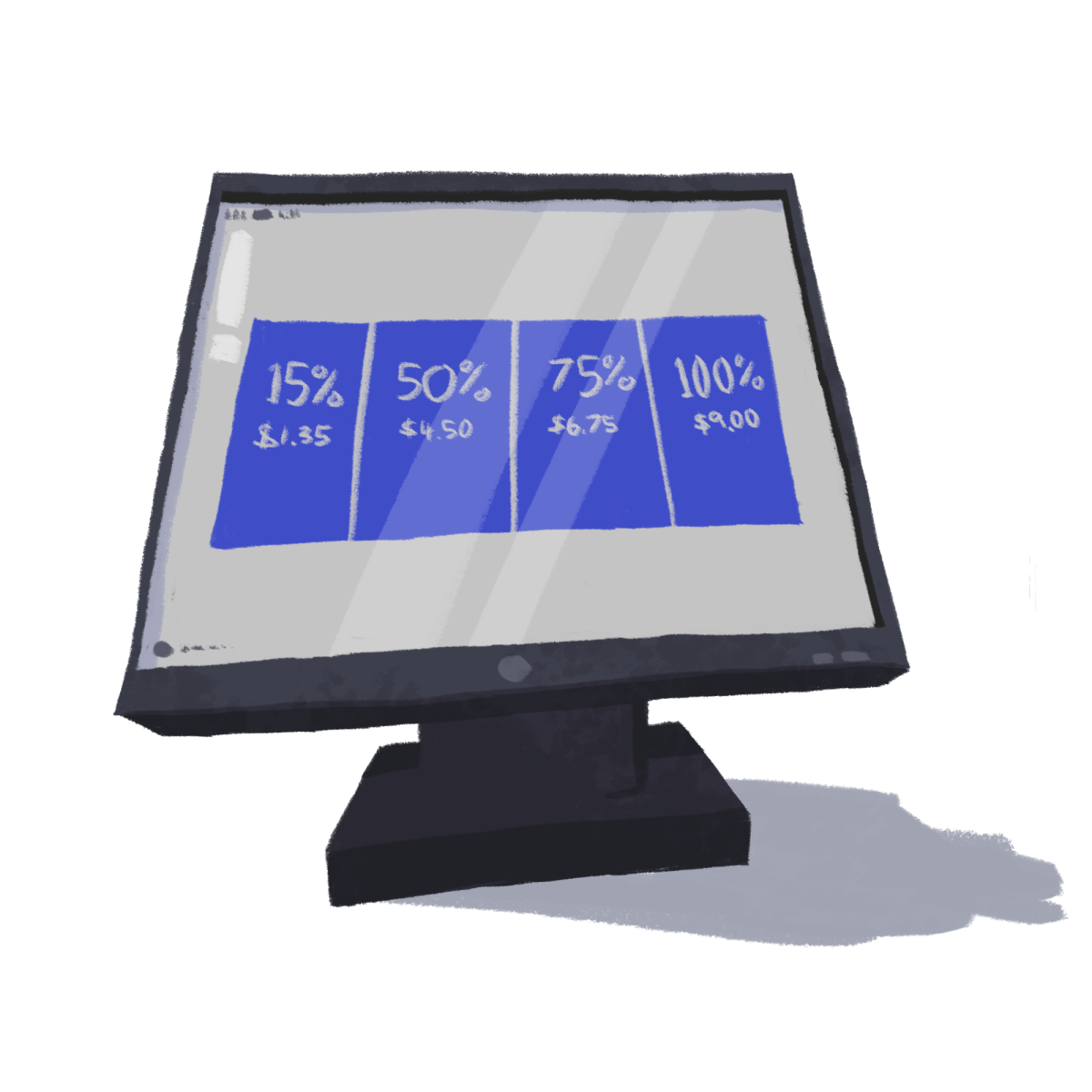Written by Eric Epstein
On July 27, Honolulu, Hawaii approved a law that prohibits pedestrians from using their electronic devices while crossing the street. Offenders of this law will be fined $15 to $35 for their first violation, and the fines increase with each successive offense, according to CNN. Honolulu Mayor Kirk Caldwell said that the law should encourage citizens to think about their safety. “People [should] use common sense as they walk around this beautiful city, [and] so they don’t become another statistic,” Caldwell said. The law will not go into effect until Oct. 25, but it has generated significant media attention since being approved. Despite the law’s admitted pettiness, it effectively addresses the growing problem of the safety of distracted pedestrians. Palo Alto should impose a law similar to Honolulu’s that would ban pedestrians’ use of cell phones and other electronic devices while crossing the street.
Pedestrians distracted by cell phones cause an excessive number of accidents in the United States. The “Age of Information” has brought the world to our fingertips, and it has never been more influential than it is right now; as of 2017, 95 percent of Americans own a cell phone, according to Pew Research Center. Every day, all of those cell phones provide their users with countless distractions. Unsurprisingly, these distractions work their way into many different activities and times in a cell phone user’s day, including time spent walking. According to Reuters, from 2000 to 2011 more than 11,000 injuries in the U.S. resulted from phone-related distractions while people were walking. Teens are especially susceptible to this phenomenon. A teen is injured or killed by being hit by an automobile every hour in the U.S. 47 percent of the teens who have reported being hit or nearly hit while walking said that they were listening to music, 18 percent said they were texting and 20 percent said that they were talking on their phones, according to Safe Kids Worldwide. Another demographic that is disproportionately affected by traffic accidents is senior citizens. “More pedestrians [are] hit in crosswalks [in Honolulu], particularly our seniors, than almost any other city in the county,” Caldwell told CNN. Although not all of the accidents involving seniors are a result of inappropriate cell phone use, the increased susceptibility of senior citizens warrant additional safety precautions. Clearly, distracted pedestrians are a huge issue that cannot be ignored.
A law outlawing texting and crossing would decrease the number of tra c accidents as well as enforce responsible habits. The law would minimize the number of distracted pedestrians needlessly stumbling into accidents. Fewer distracted pedestrians equates to safer streets. Another positive e ect of the law would be that it teaches good habits regard- ing cell phone use. The average American touches his or her phone an astounding 2,617 times per day, according to Business Insider. However, the bigger underlying issue is that many cell phone users do not know when it is appropriate to use their cell phone and when it is not. According to the CBS, about one out of three pedestrians use their mobile phones while crossing busy streets. Because many cell phone users do not know when and when not to use their devices, a law preventing them from using them in a potentially dangerous situation would help users develop responsible habits like waiting until its safe for them to check their phones.
Although some may say that it is not worth the police’s time to enforce this law, the enforcement of this law is trivial. In order to receive a citation, the perpetrator merely has to be spotted texting and crossing by any officer. is would not require any special shifts or posts—the officers would simply go about their usual routines. This law would not at all restrict the ability of the police to fight other crime, as they would not have to spend any extra time patrolling for illegal cell phone users.
The law has not been enforced yet, so Honolulu residents have a few more weeks of freedom to roam recklessly across crosswalks while staring at their screens. However, once the law is in effect, it will serve as a useful guinea pig test for the rest of the nation. If the law works as it was intentioned, Palo Alto should not hesitate to adopt a similar act.











